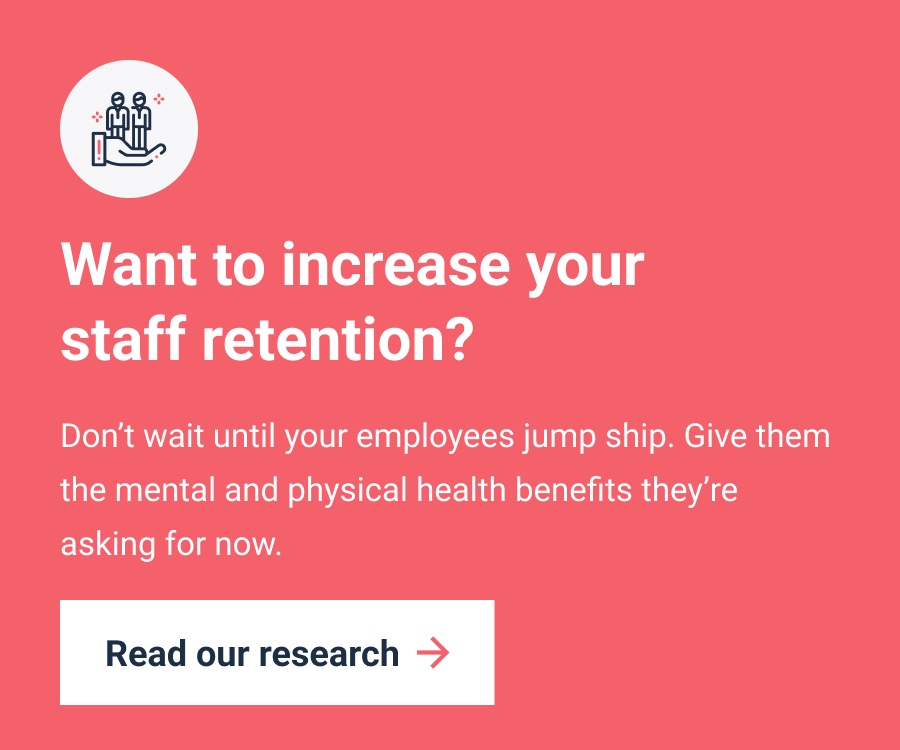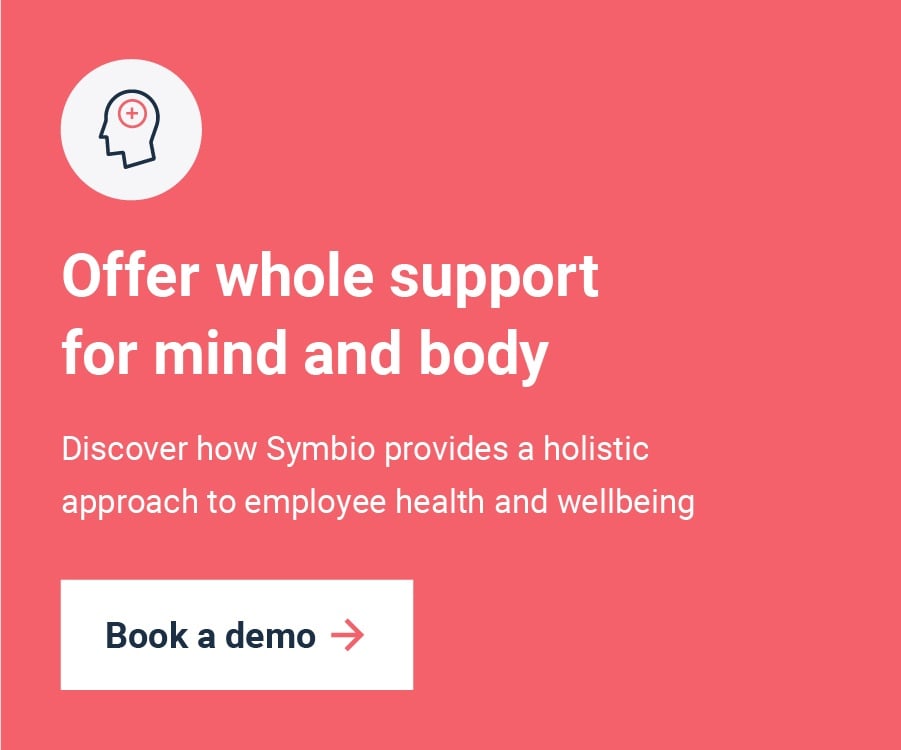The World Health Organisation (WHO) classifies infertility as ‘a disease of the male or female reproductive system’. And yet, many people still don’t view it as a legitimate medical condition.
This is especially true at work. Consider the following stats from the Fertility Network UK:
- Thirty-six percent of fertility patients in the UK felt their career was damaged as a result of fertility treatment.
- Fifty-eight percent felt concerned that fertility treatment would affect their career prospects.
- Only 45 percent felt they received really good support from their employer.
- While 77 percent disclosed their fertility treatment, only 47 percent said their employer made reasonable adjustments for them.
And yet, infertility and fertility issues impact everything from job performance and productivity to staff retention. In fact, more than one in ten fertility patients in the UK either reduced their hours or left their job.
It’s therefore vital we raise awareness about how fertility issues affect workers, as well as as how prevalent these issues are. We’re going to look at the myths surrounding infertility, the challenges your workers face, and how you can support them.
Busting 4 infertility myths
There are common myths surrounding the subject of infertility. And this means people experiencing it don’t get the support they need.
1. It’s not rare
Just because some people don’t speak openly about infertility doesn’t mean it’s uncommon. In fact, more than 3.5 million people in the UK experience fertility issues. And the majority of them are part of the workforce.
2. It’s not a lifestyle issue
Infertility is a serious medical condition that results in stress, depression, and often withdrawal. Forty percent of people with fertility issues experience suicidal thoughts—ten percent experience them often or all of the time.
3. It’s not just a woman’s issue
Men account for around half of all cases of infertility, with male infertility on the rise. And, we also need to take into account the fact that the person’s partner, be they male or female, will be severely impacted.
4. It’s not just a middle-class issue
The inability to conceive affects people across all socio-economic backgrounds. That said, people from working-class backgrounds have the odds stacked against them, as they often don’t have the funds to undergo expensive fertility treatment.
The financial burden of fertility treatments
NICE guidelines recommend that every person undergoing fertility treatments should get three full cycles on the NHS. But Scotland is the only country in the UK that adheres to this, while England provides treatment on an ad hoc basis.
This means that two-thirds of patients have to pay for their medical treatment. Furthermore, their average spend amounts to £13,750.
However, it’s not unknown for treatments to go on for years, even a decade. This can force people to re-mortgage their houses and fund their medical costs with credit cards. Sometimes, they even end up crowdfunding for their treatment.
Some companies offer benefits packages that include fertility treatment or provide low-interest loans to help ease the burden. But the financial cost, while steep, is only one of the challenges your workers will face.
The cost to your employees’ wellbeing
- Emotional. When some people discover they are unable to naturally conceive, they can undergo their own grieving process. This can be challenging for couples who have been trying to conceive for months as their life plans are being challenged perhaps as never before.
- Physical. People trying to conceive may have investigative and often invasive physical examinations. They may also need to inject hormones, which will in turn impact their physical and emotional state.
- Social. Some of your workers will have to watch as others in their lives become pregnant. This may make them want to withdraw from social groups and can contribute to their negative emotional state.
How you can support your workforce
Provide expert resources
Your support should encourage empathy and emotional intelligence around the subject of fertility. If you feel like you don’t have the expertise to provide this, look to an expert charity.
The Fertility Network UK is the national charity for fertility issues. It consults with companies across the UK to raise awareness, create bespoke policies and deliver manager and all-staff training. These can take the form of workshops or hour-long ‘lunch and learns’. These can also include troubleshooting sessions for managers, so they’re more prepared to provide support in real-world scenarios.
But the guidance doesn’t stop there. The Fertility Network UK makes a commitment to provide ongoing support to organisations and signpost to counselling services and other resources. What’s more, they hold peer support groups that all your employees can attend virtually.
Offer flexible working
When undergoing fertility treatment, your workers will need to attend clinic appointments. They may need a day off for egg retrieval and another for embryo transfer.
In fact, the Fertility Network UK estimates that someone undergoing fertility treatment will need eight to ten flexible workdays per IVF cycle. Therefore, it’s crucial your company allows its staff to work flexibly.
This enables your staff to get the treatment they need for their medical condition, without needing to take sick leave. It will also improve your staff engagement as a result, and help you retain quality staff.
Audit your workplace
Look around your workplace. See it through the eyes of those workers experiencing fertility issues.
Firstly, is there a quiet, clean, private place where they can inject hormones? Secondly, is there a fridge with space for them to safely store their medication?
Pinpoint what you can do better. Encourage a culture of openness, so that if a member of staff receives a call from the clinic while in a meeting, their line manager understands why they’re stepping out to take it.
Acknowledge your men
How many of your men experience infertility issues, either personally or with their partner?
Because of the stigma surrounding the subject of male infertility especially, you likely won’t know. Even with a culture of openness, your male staff might struggle to seek help even when they desperately need it.
Consider appointing men’s health champions or mentors so your men have someone to talk to about their issues. It’s also crucial that you signpost resources specifically for men, as well as for your entire workforce.
Consider post-treatment support
The fact is that many of your workers undergoing fertility treatment won’t conceive. And some won’t have the funds or emotional strength to undergo more treatment.
It’s important you supply resources for this scenario.
More to Life, a wing of the Fertility Network UK, provides support to people living without children. You can signpost your staff to their group meetings, as well as any internal resources you have in place to help with their feelings of grief.
Prioritise your workers’ health and wellbeing
We need to change the language around fertility and reproductive diseases. Infertility and baby loss are not lifestyle issues, but serious medical conditions that impact every aspect of your workers’ lives. That means they also impact your workplace.
So, make sure that you enshrine behaviours in your organisation that encourage awareness, openness, and empathy. Give your employees access to the resources they need, whether they’re on a fertility treatment journey now or hope to go down that path in the future.
Symbio is a health and wellbeing solution that provides your workers with personalised streaming content, virtual access to GPs, and counselling services. That way, your workers can receive both physical and psychological support—at every stage of their fertility journey. To find out more, book a demo.






